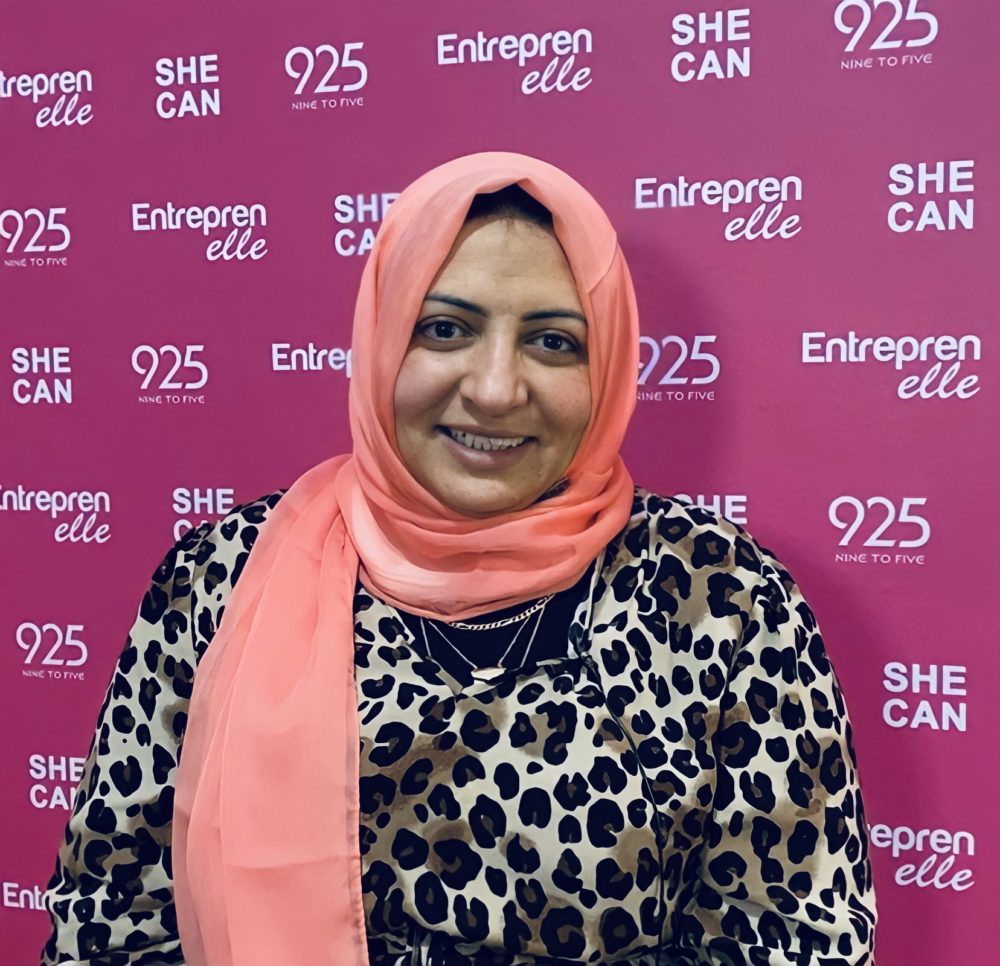From the midst of the still ongoing pandemic, Heba Rashed—the founder and CEO of the Egyptian Mersal Foudnation—emerged as a symbol of hope. The unimaginable spread of the novel coronavirus had healthcare systems around the world devastated. In Egypt, where millions live under the poverty line, it was unaffordable to many. But Rashed and her team at Mersal rolled up their sleeves to offer free healthcare services to countless Covid-19 patients who couldn’t pay for hospitalization—and they still do so successfully. How could Mersal Foundation, which was only founded back in 2015, realize this? We recently met Rashed at SHE CAN 2021 and asked her views on how organizations in Egypt could accomplish impactful charity work.
“Courage isn’t about being fearless, it’s about being afraid but persevering.”
Heba Rashed, Founder and CEO of Mersal Foundation.
Rashed began her journey with two team members, a tiny budget, no connections, and only the support of her close circles. Even though she was backed by the study and a long practice of project management, the challenges she faced along the way were countless. And during the pandemic’s peaks in Egypt, Mersal’s hotline wouldn’t stop ringing. The pressure was truly overwhelming. But they never gave up. Now, their social media accounts have garnered more than 400,000 followers, and they were featured on the BBC, The Washington Post, and other prominent TV channels in the country and around the world.
Here Are Four Lessons From the Woman Leading Mersal Foundation
1. Specialization Is Crucial
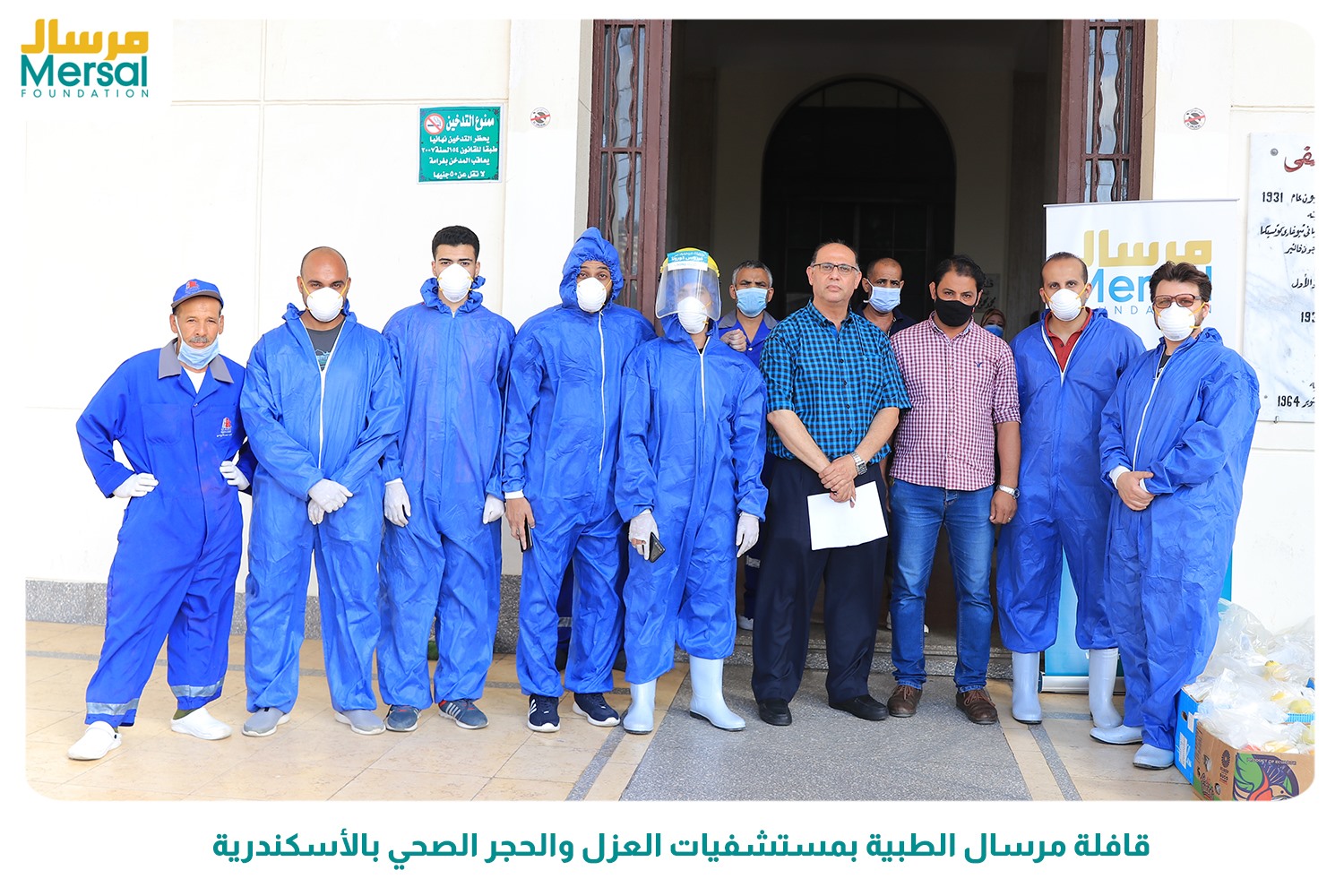
Mersal’s team medical convoy on a mission. Via Mersal Foundation.
Achieving true and tangible impact can only come through specialization. That’s what Rashed wholeheartedly believes is one of the main reasons why Mersal’s seven-year journey culminated in sustainable success. But it’s prevalent in Egypt’s NGO scene to find numerous entities focusing on multiple areas at once.
”Specializing in one area is crucial, and I wish I could see more and more NGOs in Egypt doing that,” she said enthusiastically.
When you specialize—according to Rashed—you have a substantially better chance to own the skills, knowledge, experience, and expertise needed to excel in the specific area you work in. “Mersal’s success during corona times is the fruit of focused work in the area of healthcare for many many years”, she clarified.
But there’s more to it. “When a charity focuses on several areas, the donations they receive are torn apart between those areas. And they become less impactful,” she added.
2. Big Advertising Isn’t the Only Way
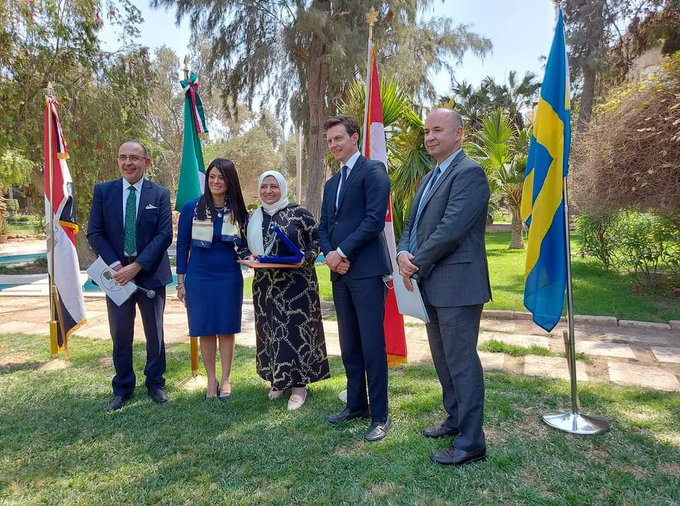
Heba Mersal (center) being awarded for her work at a ceremony held by the Swedish embassy in Egypt. Via Mersal Foundation.
You’ll have a hard time finding a single traditional advertisement for Mersal, because it doesn’t exist. But it’s not due to a lack of funding or opportunities, it’s a matter of principle for Rashed.
What partly motivated her to build Mersal instead of joining other organizations with a similar scope is her belief in a different vision. Central to that vision is the conviction that good work speaks for itself, and doesn’t need a big marketing budget or celebrity-led TV advertisements.
“The immense budget you spend on advertising should be invested in helping people,” she boldly stated, “the most advertising we do is digital—on platforms like Google and Facebook, and its budget is quite small.” But it made things quite difficult at first. “You work an awful lot to get the exposure you’d get through a month of traditional advertising.”
Mersal’s media presence was also governed by another rule that Rashed continues to firmly uphold—patients they support can never be asked by media for testimonials or meet potential donors. “Showing patients on camera or displaying their information to others is a severe violation of their dignity and privacy,” she elaborated on her position.
Uncommon even in the world of non-governmental organizations (NGOs), the above-mentioned rule sent media outlets away at first. “I lost many funding opportunities and a lot of media exposure because of it,” said Rashed. “But now, after our success during the novel coronavirus outbreaks, we’ve been invited back to the shows that once refused our appearance without patients in the beginning,” she proudly asserted.
3. Hiring and Diversifying Fundraising Streams
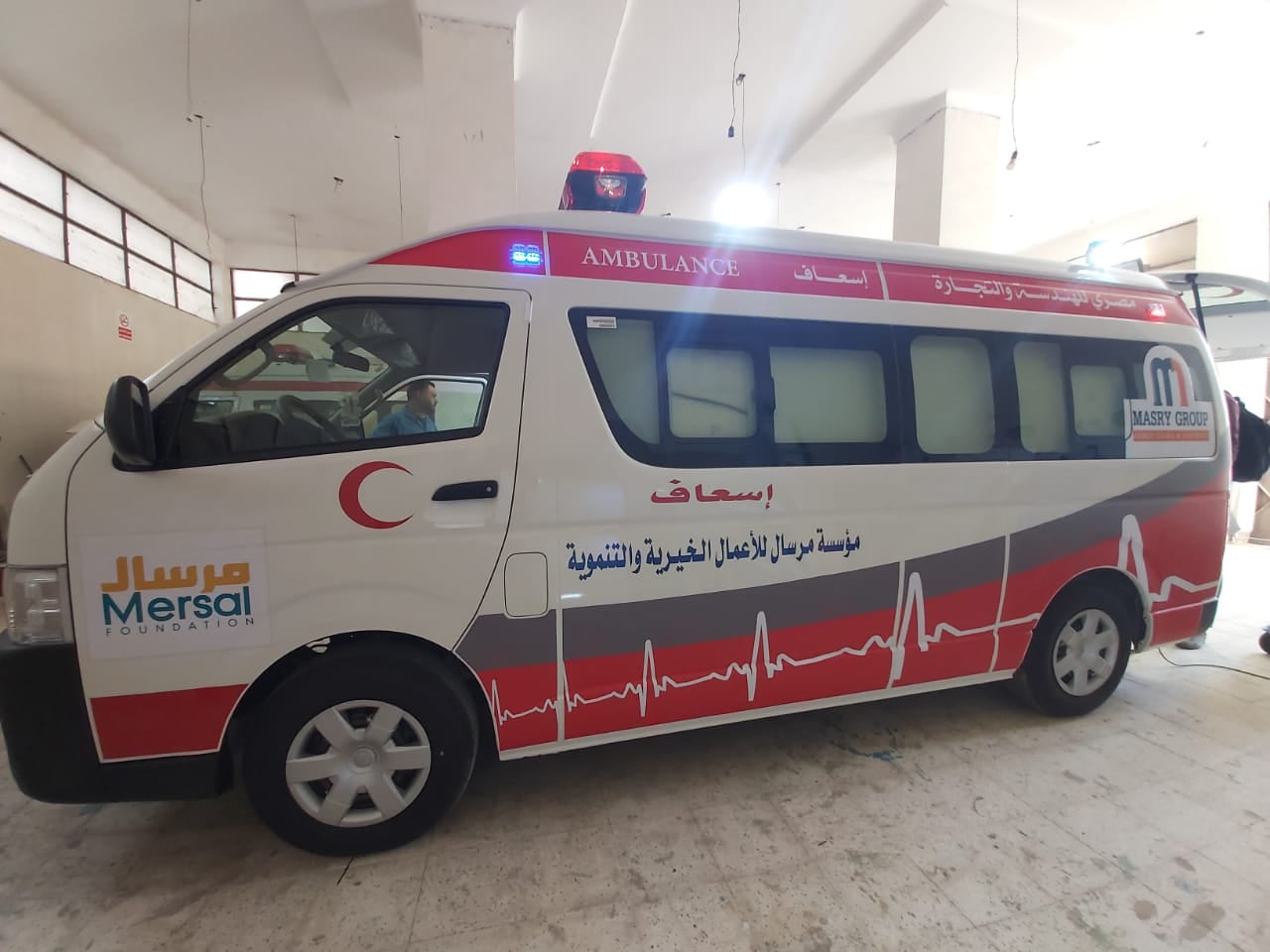
One of Mersal Foundation’s ambulances. Via Mersal Foundation.
Aside from specialization and visibility, among the most prominent issues NGOs face is raising funds and being sustainable in general. Rashed faces those challenges primarily through diversifying Mersal’s revenue streams and relying on hiring employees.
To diversify revenues, she launched Mersal Store; a gift shop where all proceeds go to support their patients. She also launched Mersal Academy; an educational organization that provides IELTS preparation courses, Project Management Professional degrees, and MBAs (in collaboration with the Swiss School of Management). Its proceeds also go to the foundation’s beneficiaries.
Up to this day, however, Rashed admits that “most of our funds are raised through donations.”
When it comes to having a sustainable team, the foundation consistently dedicates a portion of their funds to their employees. They’re the core of their operations. “Relying solely on volunteers, who play an incredibly important role, isn’t enough. You also have to hire paid employees to sustain your operations.”
4. Start Small, Build Gradually, and Persevere
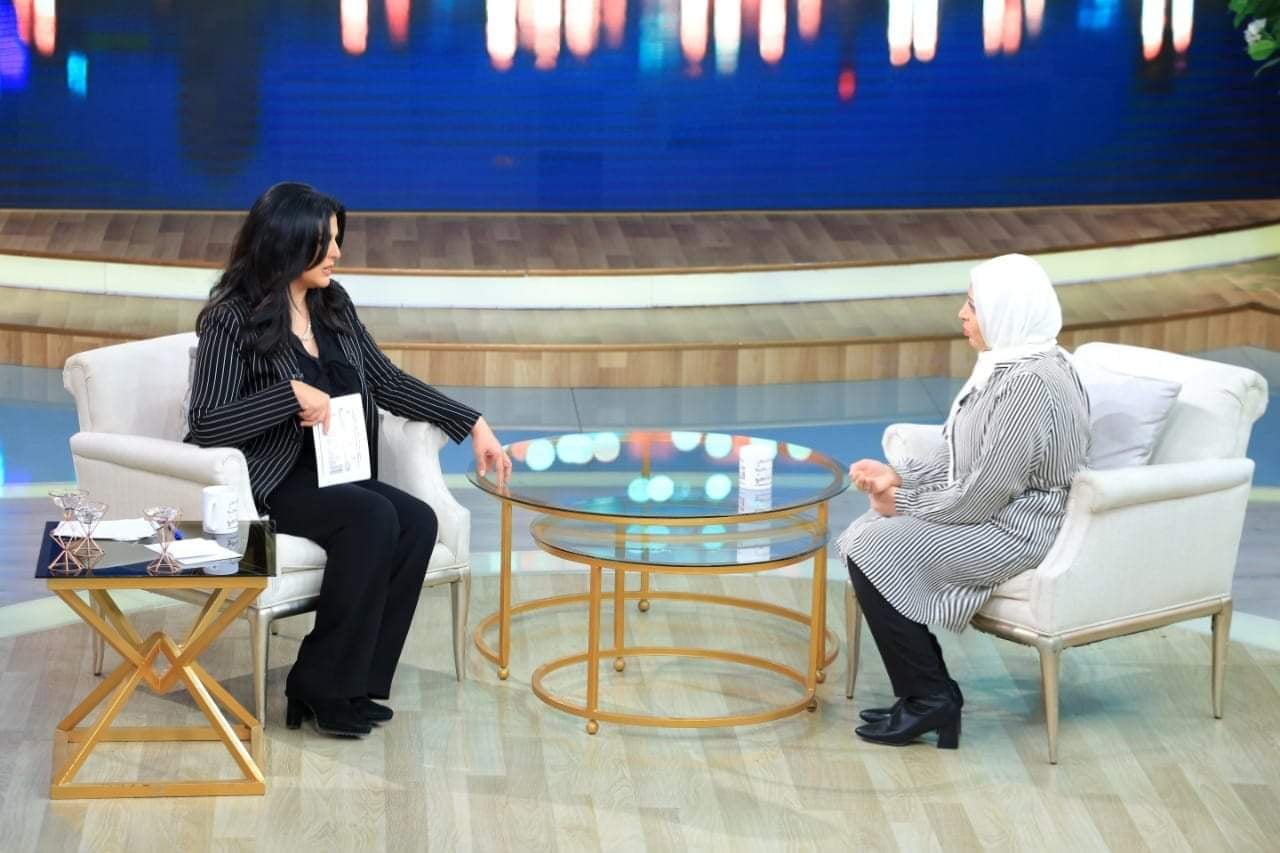
Heba Rashed being interviewed by Mona El Shazly on CBC Egypt. Via Mersal Foundation.
Born and raised in the Egyptian desert town of Fayoum, Rashed earned a bachelor’s and a master’s degree in linguistics from the faculty of Ain Shams. She then went on to acquire several project management diplomas and utilized them to build a long and thriving career in the private sector.
At the same time, she volunteered in various charitable organizations and took on initiatives by herself, and others alongside her friends. Her skills, knowledge, and expertise gradually started merging.
This led her to recognize a deficiency within charity work in Egypt; that Healthcare needed the most attention and its nature pushed NGOs away from it. Coupled with passion, this drove her to start Mersal with only two employees. “I was a young woman without big connections or money. I had a few friends believing in what I did and that was it. And when I started getting known, the idea of a woman running things and handling millions… It’s not a favorable position to be in within Egypt’s society. But now, after our success, people approve.”
Her advice to overcome it all is to focus on courage, perseverance, and patience.
“It’s okay to break down and seek the support of those around you. Courage isn’t about not being afraid, it’s about being afraid but persevering,” she asserted, noting that this was how she felt even before she ventured to offer the foundation’s services to Covid-19 patients.
Perseverance will also help us continue on our path in the presence of challenges that conflict with our principles and harmful stereotypes around female leadership, which take a long time to change.
And patience is necessary, Rashed realizes. For her, it took decades so that her knowledge, experience, and skills consolidate into what has helped her push Mersal forward to this day.
To learn more about Mersal, head to their website, LinkedIn, Instagram, or Facebook…



















